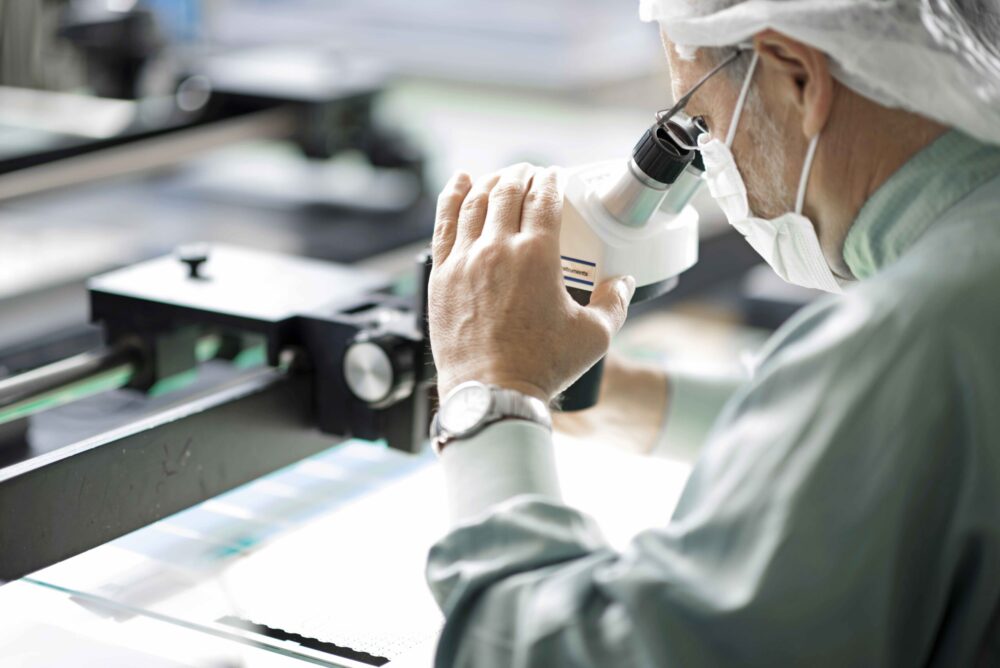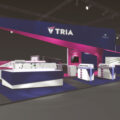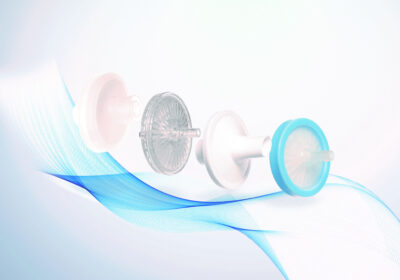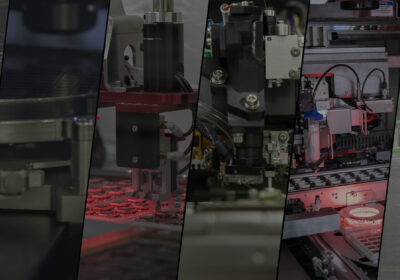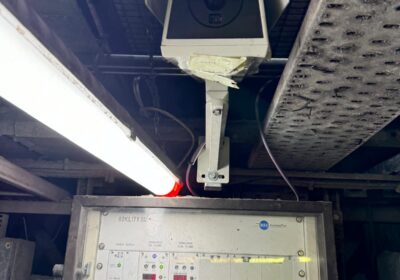Jochen Kern, Head of Sales and Marketing, micrometal Group
In the world of precision manufacturing, achieving a balance between precision, cost, and scalability is an ongoing challenge. micrometal Group, a leading player in the photo-chemical etching (PCE) sector (sometimes referred to as photo-chemical machining), has mastered this delicate balance through its innovative in-line process, unique use of liquid resist, and a firm commitment to collaboration with clients. In this article, we spoke with Dr. Mateusz Piontek, Production Manager at micrometal Group, to explore the company’s competitive edge, collaborative approach, and the impact of its technologies on the industry.
A UNIQUE APPROACH TO PHOTO-CHEMICAL ETCHING
micrometal’s distinctiveness in the PCE field lies in its proprietary in-line process and the use of liquid resist. As Dr. Piontek explains, “The in-line process allows us to achieve high production volumes while maintaining precision, a feat that is often difficult in our industry. The liquid resist technology further enhances our capability to produce components that would be extremely challenging using conventional PCM methods.”
This combination enables micrometal to cater to industries that demand ultra-fine precision and high repeatability, such as the consumer electronics, automotive, and medical sectors. Unlike traditional batch etching techniques, micrometal’s approach facilitates seamless scalability from prototyping to large-scale production without compromising quality.
LIQUID RESIST
Traditional PCE uses relatively thick dry film resist which can compromise ultimate part precision and the tolerances that are available, and it is only able to achieve 100-micron feature sizes and a minimum hole diameter of 100-200% material thickness. micrometal’s next generation PCE process enables ultra-precise contours to take shape, and as such the company can produce metal parts with unique features and a level of complexity that cannot be matched.
Dr. Piontek says, “Through the use of its patented liquid resist system, micrometal can obtain ultra-thin (2-8 micron) photoresist layers enabling a higher degree of precision in the chemical etching process. It allows the achievement of extremely small feature sizes of 25 microns, a minimum hole diameter 80% of the material thickness, and single digit micron tolerances repeatably. In addition, along with the company’s optimised exposure system it can avoid the parallax problems typically associated with alternative PCE processes”.
COLLABORATION ACROSS THE MICROMETAL GROUP
micrometal is part of a larger ecosystem that includes two sister specialist reel-to-reel batch etching companies HP Etch and Etchform. Dr. Piontek highlights the advantage of this synergy, “We are not isolated in our approach. If a project does not fit perfectly with micrometal’s strengths, we can direct it to HP Etch and Etchform, ensuring that the client receives the best possible solution. We also share insights and technical solutions across the micrometal Group, allowing us to continually refine our processes.”
This collaboration gives micrometal Group a unique positioning in the market as a “one-stop shop” for etching needs. Clients benefit from an integrated supply chain that provides them with the flexibility to start with small or medium-sized production runs and scale up when required.
By maintaining a continuous exchange of ideas and best practices between these companies, micrometal Group can solve technical challenges more efficiently. “We constantly discuss material behaviours, chemical interactions, and design nuances that could affect different manufacturing processes across the group. This ensures that we stay ahead of industry developments and optimise our production capabilities,” says Dr. Piontek.
THE IMPORTANCE OF EARLY COLLABORATION WITH CLIENTS
micrometal firmly believes that early-stage collaboration with customers is key to achieving optimal results. “If we are involved from the design phase, we can pre-empt potential production challenges and ensure that the design is optimised for high-volume manufacturing,” explains Dr. Piontek. “This is particularly crucial when scaling up, as certain design adjustments might be necessary to maintain quality and efficiency.”
One prime example of this collaborative approach was a recent project with a Tier 1 automotive supplier. The client initially approached multiple PCE specialists to develop a complex filter component. However, only micrometal was able to meet the stringent requirements. “At first, the design seemed unworkable, but through co-engineering and iterative development, we arrived at a viable solution that exceeded expectations. The client later admitted that none of our competitors could match our precision and process efficiency,” Dr. Piontek recalls.
Another aspect of early collaboration is ensuring that clients fully understand the capabilities and constraints of PCE. “Many of our customers are experts in their respective fields but may not be familiar with the intricacies of PCE. We take the time to educate them on best practices, which ultimately leads to better design outcomes and more cost-effective production.”
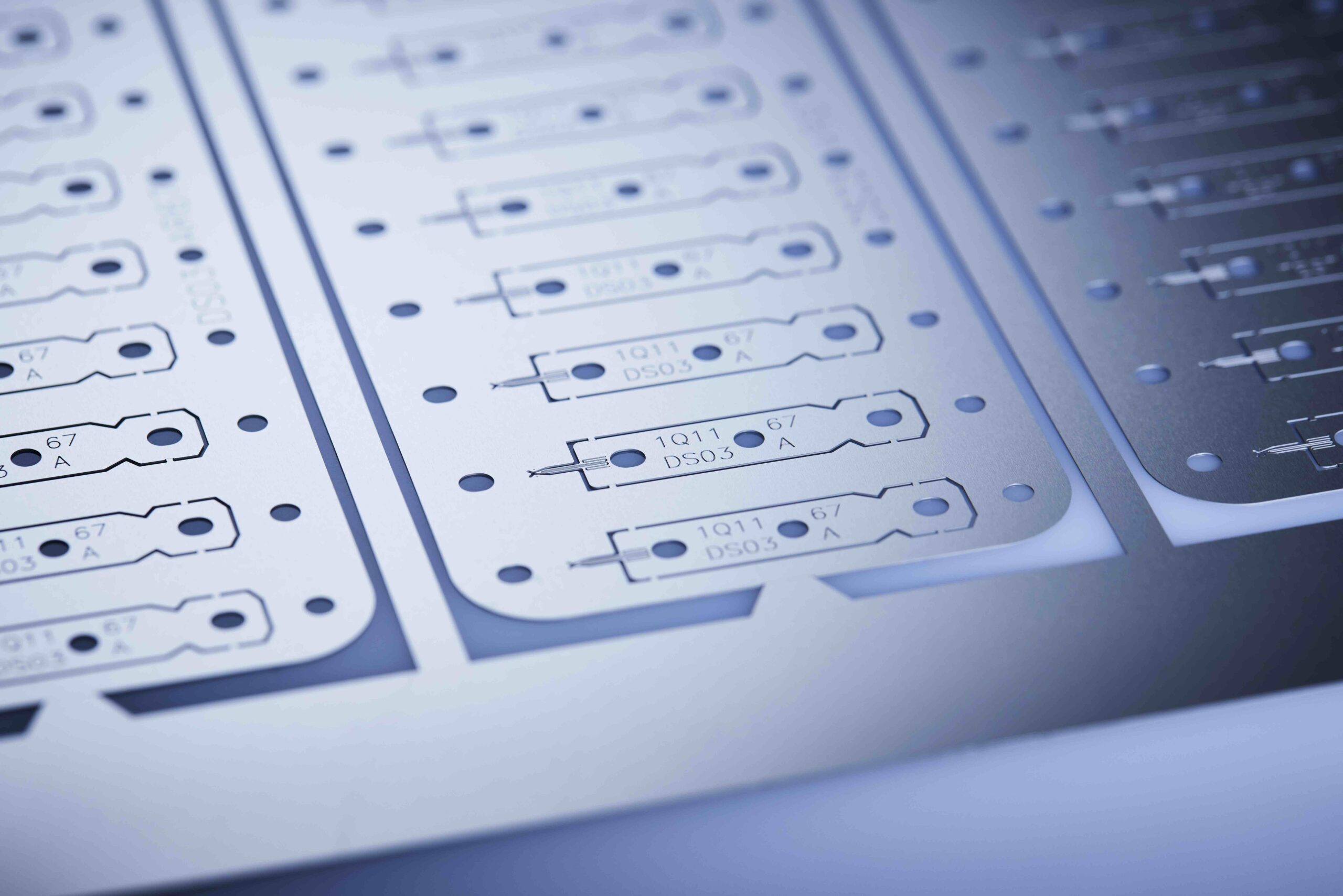
BALANCING PRECISION, COST, AND SCALABILITY
One of the biggest challenges in precision manufacturing is maintaining accuracy while keeping costs reasonable and ensuring scalability. micrometal’s strategy for overcoming this hurdle is a combination of meticulous process control and investment in expertise. “Precision is intrinsic to our operations. We don’t compromise on it. Instead, we focus on refining our processes to achieve cost efficiency without sacrificing accuracy,” says Dr. Piontek.
A critical aspect of this strategy is reducing yield loss and scrap. “Every production run improves over time. The more we produce, the better we get at minimising inefficiencies. This ultimately benefits our customers by ensuring they receive high-quality parts at a competitive price,” he adds.
micrometal has also developed proprietary process monitoring techniques to ensure continuous improvement. “We track key performance metrics on a daily basis, allowing us to make real-time adjustments and prevent potential quality issues before they arise,” Dr. Piontek explains. “This level of attention to detail is what sets us apart.”
FLEXIBILITY FROM PROTOTYPING TO HIGH-VOLUME PRODUCTION
micrometal’s ability to seamlessly transition from prototyping to large-scale production sets it apart from many competitors. “Customers often come to us with innovative but untested designs. Our approach allows us to quickly assess the feasibility of these designs without disrupting standard production,” says Dr. Piontek. “We don’t just run a one-off prototype; we think about how it will scale from the outset.”
This capability is particularly important for companies in highly regulated industries, such as medical devices, where design stability is critical. By fine-tuning designs early in the process, micrometal ensures that production remains consistent, even at high volumes.
Moreover, the company has built a robust quality assurance framework that applies across all production scales. “Whether we’re producing a single prototype or a million units, our quality standards remain the same. This gives our customers confidence that they can rely on us for both R&D and mass production,” Dr. Piontek notes.
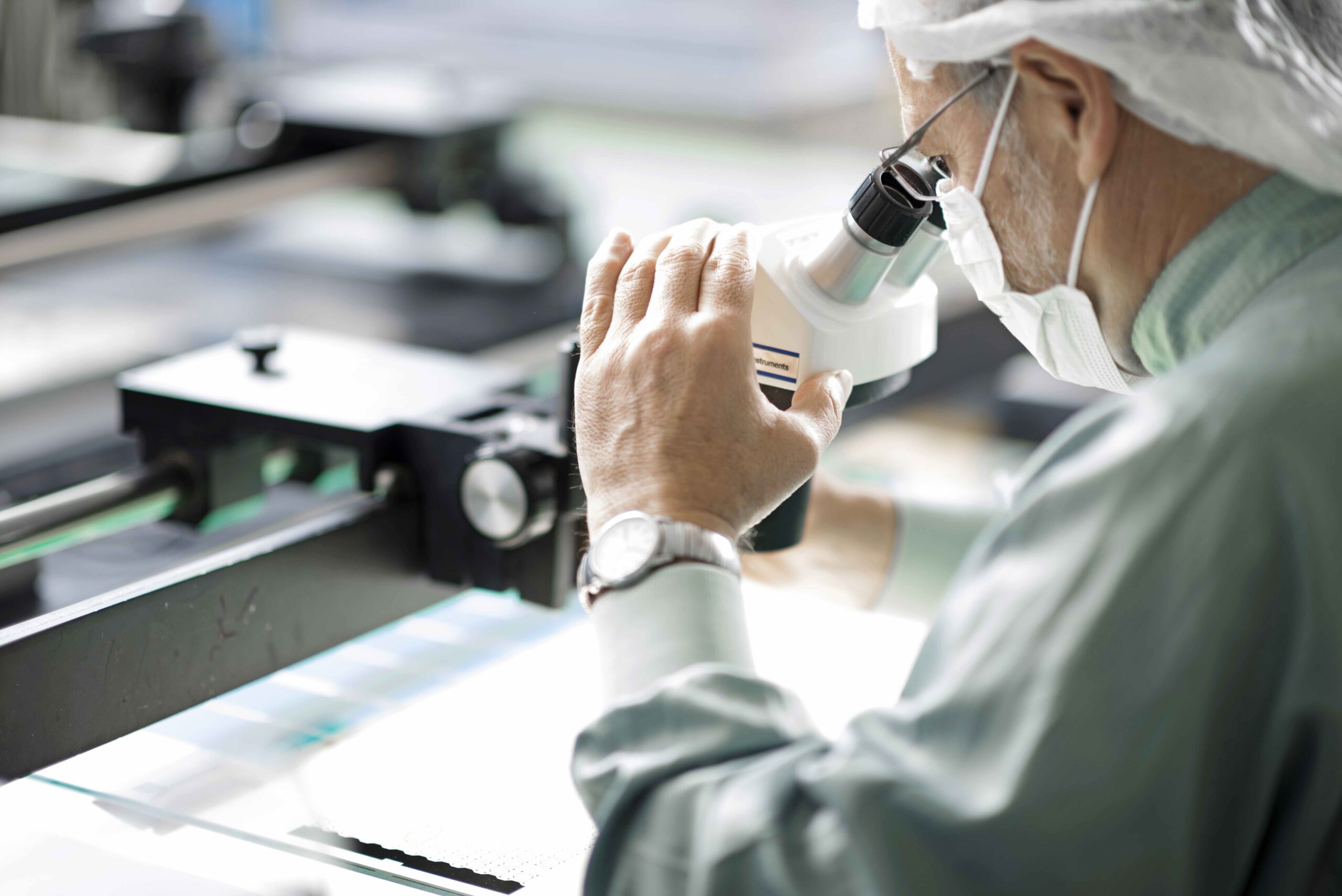
FAST TURNAROUND AND CUSTOMER-CENTRIC SERVICE
Speed is a significant factor in today’s manufacturing landscape. micrometal has implemented structured slots in its production schedule to accommodate urgent client requests. “We understand that time-to-market is crucial. That’s why we maintain flexible sampling slots that allow us to adapt to customer needs without compromising ongoing production,” Dr. Piontek explains.
COMMITMENT TO QUALITY OVER YIELD
At the heart of micrometal’s philosophy is an unwavering commitment to quality. “My personal slogan is ‘quality over yield.’ If we try to cut corners to maximise output, we might get short-term gains, but we would sacrifice long-term trust and reliability,” says Dr. Piontek.
This philosophy has helped micrometal build a reputation for excellence in the industry. By prioritising quality, the company ensures that customers receive components that not only meet specifications but also perform reliably over time.
SUMMARY
micrometal’s approach to precision manufacturing is a testament to how innovation, collaboration, and a commitment to quality can transform an industry. By leveraging its in-line process, liquid resist technology, and co-engineering expertise, the company continues to push the boundaries of what is possible in PCE.
“We don’t just manufacture components, we partner with our customers to develop the best possible solutions. This is what makes micrometal stand out,” concludes Dr. Piontek. “As industries demand ever-higher precision and efficiency, micrometal remains at the forefront, redefining the standards for photo-chemical etching.

